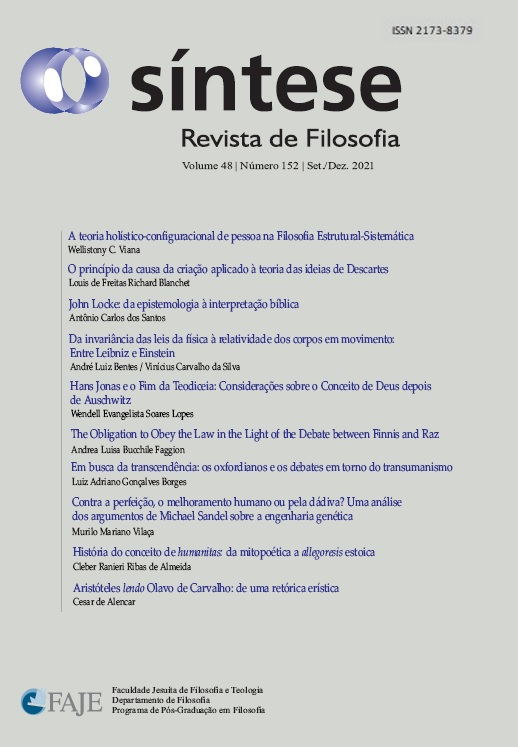HISTORY OF THE CONCEPT OF HUMANITAS: FROM MYTHOPOETICS TO STOIC ALLEGORESIS
DOI:
https://doi.org/10.20911/21769389v48n152p807/2021Abstract
This paper aims to reconstruct the etymological, philological and experiential trajectory of the concept of humanitas from its Stoic origin in the Scipionic Circle to its assimilation by the Augustinian imperial tradition (especially in panegyric texts). My purpose is to understand why, from the beginning, such a concept has presented a semantic core whose meaning is inconstant, volatile and open. I will try to prove that this semantic indeterminacy comes from the progressive degeneration process of the mythopoetic representations of man in favor of a noetic understanding. This noetic understanding was later assimilated by the Roman Stoicism in the form of an allegorical representation (allegoresis) whose semantic content had become merely linguistic and self-referential. The symbols of experience were thus reduced to mere language games. Accordingly, the understanding of the original concept of humanitas depends less on an investigation about the philological evidence regarding the use of the word in canonical texts and more on an investigation about the experiences that made possible the formation of an awareness of the symbolic unity of humanity as political reference.


















